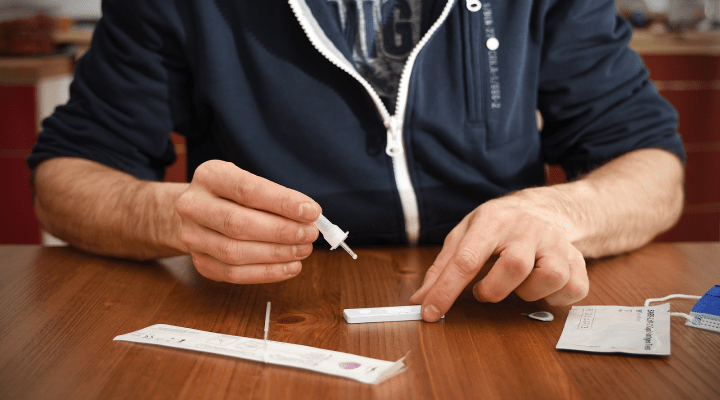Several Australian businesses and individuals have teamed up to create a new online platform for people with disabilities to access free Rapid Antigen Tests (RAT) and have them delivered to their door. The platform, called LifeRAT, was created by Dr Dinesh Palipana, a doctor, lawyer, scientist, disability advocate and last year’s Queensland Australian of the Year, after he realised that Australians living with disabilities were getting left behind as the country opened back up. “Throug
Throughout the pandemic, a lot of people with disabilities have been doing their best to avoid getting Covid. I know some, particularly during Omicron, who haven’t left their house for ages now,” Palipana told Inside Retail. https://500a0d0707a32d62e781c1ce780ef3c2.safeframe.googlesyndication.com/safeframe/1-0-38/html/container.html
“Everyone now is out and about in the community leading their normal lives, but there’s still a subset of people with disabilities who are inside and locked away because they’re too scared of getting Covid-19 and the potential consequences.”
He pointed out that certain people with disabilities are more likely to have negative outcomes from the coronavirus.
“My lung function is about 35 per cent of what’s expected for someone my age, size and height. If I were to get [Covid], I could have a much worse outcome than another person with my characteristics,” he said.
Having access to RATs would give people with disabilities the confidence to have carers enter their home to assist them with everyday tasks and safely get back out into the community, but even though stock levels have improved in recent weeks, some people with disabilities still face hurdles to getting free tests.
That’s when Palipana turned to the business community, specifically, online retailer Lovehoney, which has a strong track record of supporting people with disabilities.
“I started talking to Rob [Godwin, Australasian director] at Lovehoney and the guys at Able Digital Wellness about where we could get free RATs and get them out to people with disabilities. We put our heads and resources together, and now here we are: the project is rolling out,” he said.
For people with disabilities, by people with disabilities
In addition to providing financial assistance, Lovehoney is also contributing its expertise in logistics and warehousing. LifeRAT orders are being picked and packed in the retailer’s warehouse at no cost to the customer. And thanks to Lovehoney’s diverse hiring practices, they are actually being fulfilled by people with disabilities, too.
“I love how LifeRAT is being made for people with disabilities by people with disabilities,” Palipana said.
Godwin said he was proud to be an inclusive employer and to be able to assist with the initiative.
“This is the right thing to do, at the right time,” he told Inside Retail.
Besides Lovehoney and Able Digital Wellness, a number of organisations were involved in getting LifeRAT off the ground, including inclusive sex toy brand Bump’n and Australia Post and Mainfreight, which are ensuring the tests get to those who need them.
Now, LifeRAT is calling on other businesses to help support the platform by making a donation on the website.
“Retailers have so much power and the ability to get these people tests,” Palipana said.
Beyond increasing access to RATs, however, retailers have a role to play in improving the lives of people with disabilities.
How retailers can help
“In every one of our communities, in every one of our localities, there are people with disabilities. I encourage you to think about how you can empower and include them during this time,” he said.
Godwin made the case for employing more diverse staff: “I would strongly recommend all retailers to reach out to the disability community and see where they can actively encourage employment,” he said.
“This would provide the opportunity for people with disabilities to live an active and inclusive life, working as equals alongside able bodied staff.”

